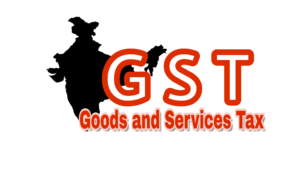IGST Refund

IGST refund, The Central Board of Excise and Customs (CBEC) has introduced an alternative mechanism enabling the exporters to rectify the mistakes in cases where IGST Refund is stuck due to invoice mismatch, a great relief to taxpayers,
This procedure is available only for Shipping Bills filed until 31st December 2017.
The Circular No. 05/2018-Customs provided the following conditions that need to be fulfilled for getting successful processing of IGST Refund claims.
(i) Exporters have to file GSTR 3B with taxable value for export and IGST paid against exports indicated in appropriate fields.
(ii) Exporters have to file GSTR 1 or Table 6A for the exports made with correct details such as Invoice number, Taxable value, IGST paid, Shipping Bill number, Shipping Date and Port Code. A large number of exporters have filed incomplete GSTR 1 or Table 6A where shipping bill number or date or port code are missing. These records are not processed/forwarded to Customs by GSTN. E-mails have been sent to exporters asking them to correct their records through amendment process of GSTR 1 i.e through Table 9 of GSTR 1 of the following month.
(iii) The aggregate IGST paid the amount claimed in GSTR 1 or Table 6A should not be greater than the IGST paid the amount indicated in Table 3.1(b) of GSTR 3B of the corresponding month. This check is put in the GSTN system to ensure that the IGST refund claimed is not more than the IGST paid by the exporter. Analysis of GSTN return data indicates that this condition has failed in a large number of cases, consequently, the information filed by exporters is not forwarded to Customs by GSTN. In these cases also, e-mails have been sent to exporters asking them to correct their records through amendment process of GSTR 1 i.e. through Table 9 of GSTR 1 of the following month.
(iv) The analysis of data further indicates that only about 32% records of GSTR 1 / Table 6A have been transmitted from GSTN to Customs. In other words, a majority of IGST refund claims are held up either due to insufficient information or lack of due diligence on the part of exporter while filing GST returns.
(v) Exporters may be advised to use Table 9 of GSTR 1 of the following month to amend the records of previous month so as to take care of issues mentioned in paras (ii) and (iii) above. In cases where exporters have already filed information through Table 9 of GSTR 1, the said information is being validated by GSTN. The validated information is expected to be forwarded by GSTN to Customs by mid-March 2018 for further processing
(vi) The records (i.e GSTR 1 or Table 6A) which have been forwarded by GSTN to Customs after validations mentioned at (ii) and (iii) above are processed by the Customs EDI system. In cases where the information forwarded by GSTN tallies with the information furnished in Shipping bills, IGST Refunds are automatically sanctioned by Customs EDI system. As mentioned earlier, till date about Rs. 4000 Crore has been sanctioned as the Refund of IGST paid.
(vii) However, there are many instances where IGST Refunds are held up on Customs EDI system due to certain errors which have been clearly brought out in the Circular No 42/2017- Customs. The major errors that are committed by the exporters are (a) incorrect Shipping bill numbers in GSTR 1 (b) GSTIN declared in the shipping bill does not match with the GSTIN used to file the corresponding GST Returns (c) the most common error hampering IGST Refund is due to mismatch of invoice number, taxable value and IGST paid in the Shipping Bill vis-à-vis the same details mentioned in GSTR 1 / Table 6A which is the most common error hamperingIGST Refund. Another reason attributable to carriers is the non-filing or incorrect filing of electronic Export General Manifest (EGM).
(viii) Exporters may be advised to track the IGST Refund status and errors pertaining to their shipping bills on the ICEGATE website.
(ix) The analysis of Customs data indicates that while most of the errors mentioned in para (vi) above are decreasing, the error mentioned at (c) in para (vii) is most prevalent. The error mentioned at (c) in para (vii) is about invoice mismatch. This error is because of the fact that exporters are using two sets of invoices, one invoice for GST and another invoice for Customs which is resulting in the mismatch of invoice numbers, including mismatches in taxable value and IGST paid in those invoices. It is once again reiterated that exporters may be advised to take due care to ensure that the details of invoice such as invoice number, taxable value and IGST paid mentioned in GSTR 1 and shipping bill match with each other and the invoice issued is compliant with the GST Invoice Rules, 2017


Permalink